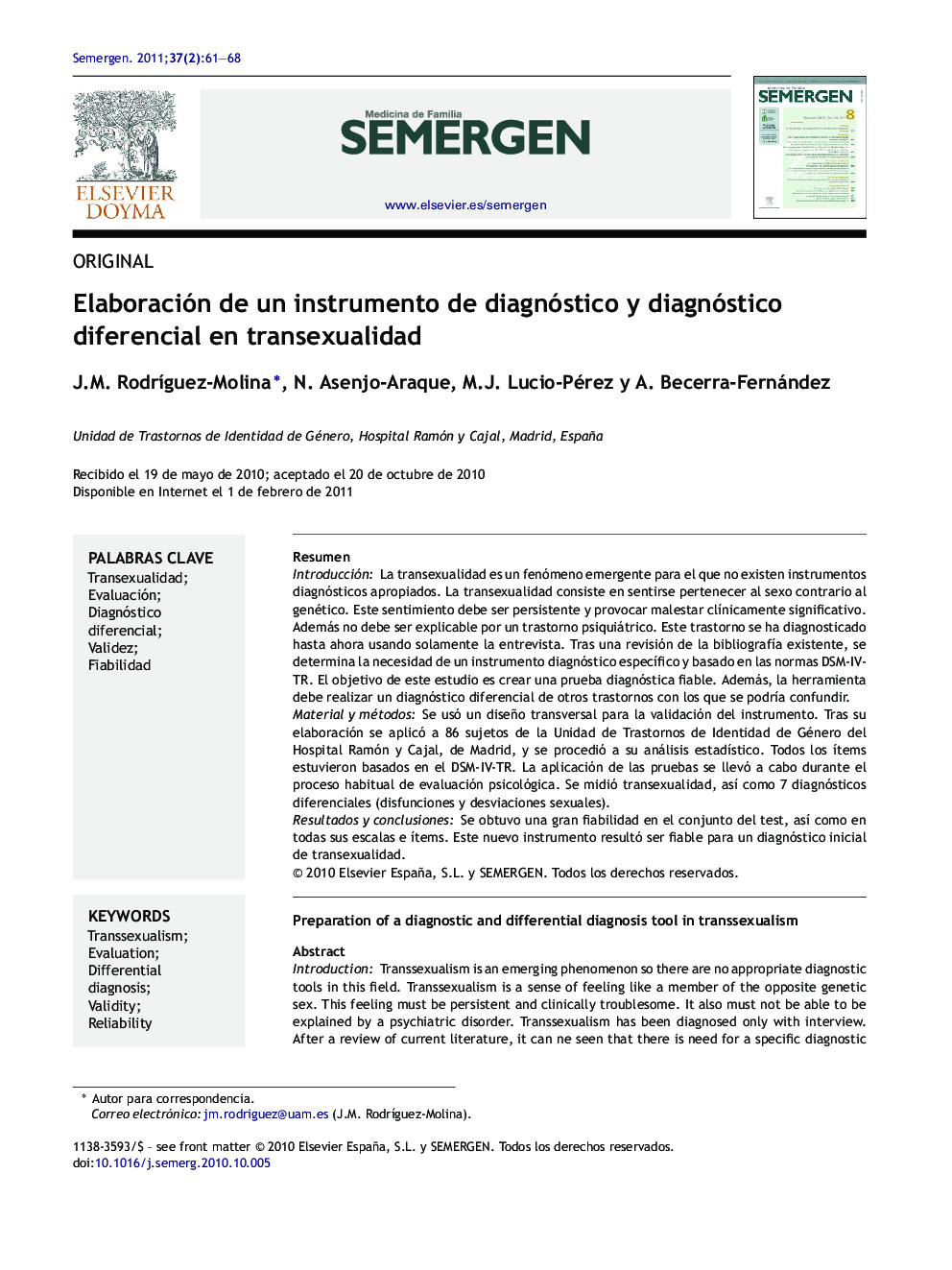| Article ID | Journal | Published Year | Pages | File Type |
|---|---|---|---|---|
| 3835481 | SEMERGEN - Medicina de Familia | 2011 | 8 Pages |
ResumenIntroducciónLa transexualidad es un fenómeno emergente para el que no existen instrumentos diagnósticos apropiados. La transexualidad consiste en sentirse pertenecer al sexo contrario al genético. Este sentimiento debe ser persistente y provocar malestar clínicamente significativo. Además no debe ser explicable por un trastorno psiquiátrico. Este trastorno se ha diagnosticado hasta ahora usando solamente la entrevista. Tras una revisión de la bibliografía existente, se determina la necesidad de un instrumento diagnóstico específico y basado en las normas DSM-IV-TR. El objetivo de este estudio es crear una prueba diagnóstica fiable. Además, la herramienta debe realizar un diagnóstico diferencial de otros trastornos con los que se podría confundir.Material y métodosSe usó un diseño transversal para la validación del instrumento. Tras su elaboración se aplicó a 86 sujetos de la Unidad de Trastornos de Identidad de Género del Hospital Ramón y Cajal, de Madrid, y se procedió a su análisis estadístico. Todos los ítems estuvieron basados en el DSM-IV-TR. La aplicación de las pruebas se llevó a cabo durante el proceso habitual de evaluación psicológica. Se midió transexualidad, así como 7 diagnósticos diferenciales (disfunciones y desviaciones sexuales).Resultados y conclusionesSe obtuvo una gran fiabilidad en el conjunto del test, así como en todas sus escalas e ítems. Este nuevo instrumento resultó ser fiable para un diagnóstico inicial de transexualidad.
IntroductionTranssexualism is an emerging phenomenon so there are no appropriate diagnostic tools in this field. Transsexualism is a sense of feeling like a member of the opposite genetic sex. This feeling must be persistent and clinically troublesome. It also must not be able to be explained by a psychiatric disorder. Transsexualism has been diagnosed only with interview. After a review of current literature, it can ne seen that there is need for a specific diagnostic tool based on the standard DSM-IV-TR. The aim of this study was to create a reliable diagnostic test. Moreover, the tool must be able to make a differential diagnosis as regards other disorders which can be confused with it.Material and methodA cross design was used for validation of the instrument. After constructing the test, it was applied to 86 subjects of the Gender Identity Disorders Unit of the Ramon y Cajal Hospital, Madrid, and then statistically analysed. All items were based on the DSM-IV-TR. The tests were applied during the usual process of psychological assessment. We measured transsexuality and seven differential diagnoses (sexual deviations and dysfunctions).Results and conclusionsWe found high reliability throughout the test, and on all scales and items. This new tool seems to be useful and reliable for the initial diagnosis of transsexualism.
